
Paradise Found: Baby Beach in Aruba
Baby Beach, located on the southeastern tip of Aruba, is a stunning crescent-shaped beach known for its shallow, crystal-clear waters. This beach, a favorite among both locals and tourists, offers a perfect setting for families and those looking to relax in a tranquil environment. The water is calm and shallow, making it ideal for young children and inexperienced swimmers to enjoy safely. Snorkeling enthusiasts will find Baby Beach a hidden gem, as its waters are teeming with colorful marine life. The protected bay is home to a diverse array of fish, making it a perfect spot for underwater exploration. Bring your snorkeling gear or rent some on-site to discover the vibrant underwater world just a few steps from the shore. In addition to its natural beauty, Baby Beach is equipped with amenities to ensure a comfortable visit. There are shaded areas, picnic tables, and food stands offering local snacks and refreshing drinks. Whether you're looking to bask in the sun, swim in the serene waters, or enjoy a beachside picnic, Baby Beach provides a picturesque and serene escape from the hustle and bustle of daily life.
Local tips in Baby Beach
- Bring your own snorkeling gear for the best underwater experience, as rental options can be limited.
- Arrive early to secure a shaded spot, especially on weekends and holidays when the beach can get crowded.
- Pack a picnic or enjoy local snacks from the beachside food stands for a delightful beach day.
- Wear water shoes to protect your feet from sharp rocks and coral when exploring the shallow waters.
- Keep an eye on the weather forecast, as sudden changes can affect sea conditions.
Paradise Found: Baby Beach in Aruba
Baby Beach, located on the southeastern tip of Aruba, is a stunning crescent-shaped beach known for its shallow, crystal-clear waters. This beach, a favorite among both locals and tourists, offers a perfect setting for families and those looking to relax in a tranquil environment. The water is calm and shallow, making it ideal for young children and inexperienced swimmers to enjoy safely. Snorkeling enthusiasts will find Baby Beach a hidden gem, as its waters are teeming with colorful marine life. The protected bay is home to a diverse array of fish, making it a perfect spot for underwater exploration. Bring your snorkeling gear or rent some on-site to discover the vibrant underwater world just a few steps from the shore. In addition to its natural beauty, Baby Beach is equipped with amenities to ensure a comfortable visit. There are shaded areas, picnic tables, and food stands offering local snacks and refreshing drinks. Whether you're looking to bask in the sun, swim in the serene waters, or enjoy a beachside picnic, Baby Beach provides a picturesque and serene escape from the hustle and bustle of daily life.
When is the best time to go to Baby Beach?
Iconic landmarks you can’t miss
Bachelor’s Beach
Discover the serene beauty of Bachelor's Beach in Aruba, a tranquil escape with soft sands and crystalline waters, perfect for relaxation and exploration.

I love Aruba / Baby Beach sign
Experience the pristine beauty of Baby Beach in Aruba, a perfect destination for relaxation, snorkeling, and unforgettable sunsets.

Unmissable attractions to see
On The Rocks
Experience culinary excellence at On The Rocks in Aruba's Cove Mall, offering diverse dishes and a vibrant atmosphere for an unforgettable dining experience.

Alto Vista Winery & Distillery
Experience the unexpected: Aruba's first winery and distillery, crafting unique wines & spirits in a stunning desert setting.

Clear Kayak Aruba
Explore Aruba's stunning marine life from a unique perspective with clear-bottom kayak tours in Savaneta. Unforgettable underwater adventures await!

Bogart's chef's table Aruba
Experience a bespoke culinary journey at Bogart's Chef's Table in Aruba, where intimate dining meets innovative cuisine and sophisticated cocktails.

L'Avenue Aruba
Experience authentic Belgian cuisine in a vibrant Aruban setting. Fresh flavors, top-notch service, and a memorable dining escape await!

Drunken Burger
Gourmet burgers, creative cocktails, and a lively vibe await at Drunken Burger, Aruba's must-try dining destination in The Cove Mall.

Boca Prins
Discover Aruba's rugged beauty at Boca Prins: dramatic dunes, crashing waves, and stunning coastal views in Arikok National Park.

The Cove Mall
Discover The Cove Mall in Palm Beach, Aruba: a vibrant shopping destination with local and international brands, dining, and unique experiences.
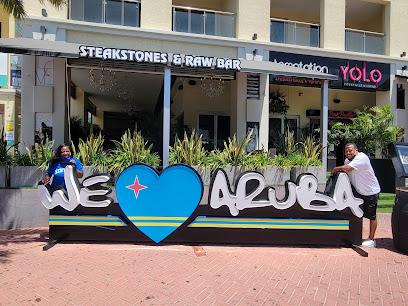
Bachelor’s Beach
Escape to the tranquil shores of Bachelor's Beach in San Nicolas, Aruba, for serene relaxation, windsurfing, and breathtaking sunsets.
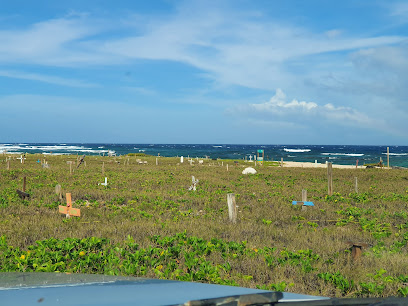
I love Aruba / Baby Beach sign
Capture the spirit of Aruba at this iconic sign by the tranquil Baby Beach, a must-visit spot for memorable photos and serene moments.
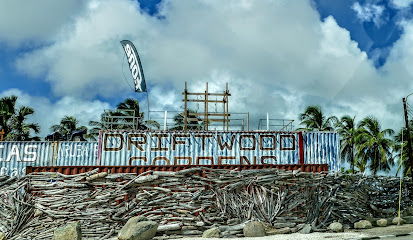
Essential places to dine
Kamini's Kitchen
Experience the heart of Aruban cuisine at Kamini's Kitchen in San Nicolas - where fresh ingredients meet local hospitality.
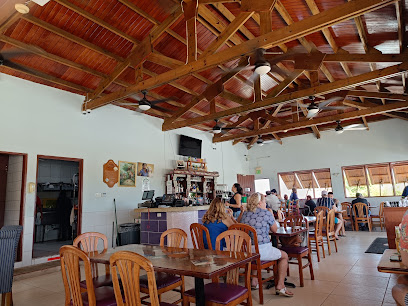
Rum Reef
Experience the essence of Caribbean cuisine at Rum Reef with breathtaking views of Baby Beach.

Big Mama Grill
Discover Big Mama Grill: A charming grill restaurant near Baby Beach serving delicious local flavors amidst stunning Caribbean views.
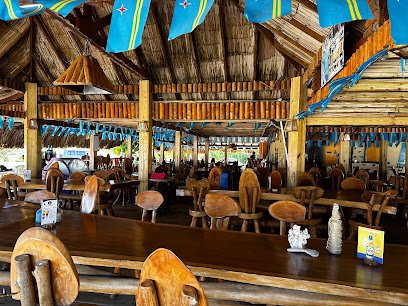
Baby Beach Snack Bar
Experience local Aruban flavors at Baby Beach Snack Bar near stunning turquoise waters—an ideal spot for relaxation and delicious bites.
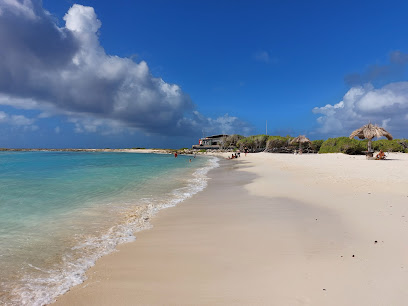
Fruit Fun Spot
Discover tropical sweetness at Fruit Fun Spot in San Nicolas—where Latin American flavors meet refreshing fruit delights.
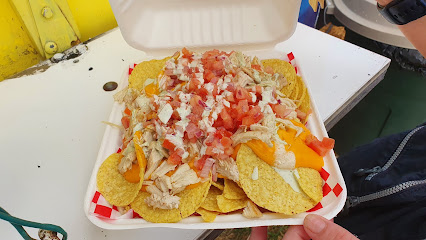
La Choza Restaurant
Experience authentic Aruban cuisine at La Choza Restaurant by Baby Beach - where flavor meets breathtaking views.

Markets, malls and hidden boutiques
Baby Beach
Experience the tranquil beauty of Baby Beach in Aruba, a family-friendly paradise of soft sands and vibrant marine life, perfect for relaxation and adventure.

Ke Ke Mega Mart
Explore the vibrant Ke Ke Mega Mart in Aruba, a department store offering local products, souvenirs, and essentials in a colorful setting.

Baby Beach Parking
Discover the serene oasis of Baby Beach Parking, your gateway to Aruba's stunning coastline and tranquil waters.
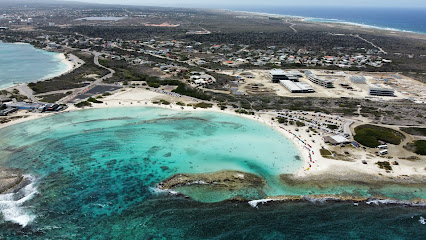
Style Aruba .com (Appt. Only! Book Online Or Call)
Explore Style Aruba for unique beach clothing, handcrafted jewelry, and local tours that celebrate the island's vibrant culture.

Jads Dive Center
Discover the underwater wonders of Aruba at Jads Dive Center, where adventure meets tranquility in the Caribbean's breathtaking waters.
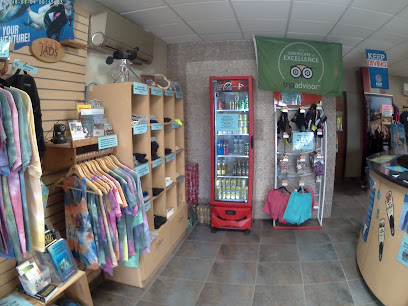
I Love Aruba Store II
Explore I Love Aruba Store II for unique souvenirs and stunning jewelry that showcase the vibrant culture and artistry of Aruba.

I Love Aruba Store I
Explore I Love Aruba Store I for authentic souvenirs and exquisite jewelry, capturing the vibrant spirit of Aruba in every piece.

Lago Heights Market
Explore Lago Heights Market in San Nicolas, Aruba, your one-stop shop for local snacks and essentials amidst the tropical paradise.
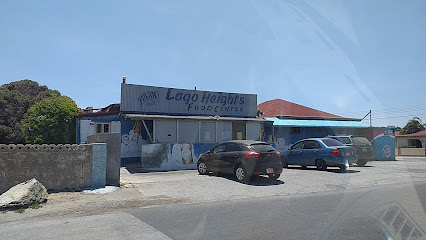
Big Bazaar
Discover a world of shopping at Big Bazaar in Oranjestad - your ultimate destination for clothing and essentials on Aruba.
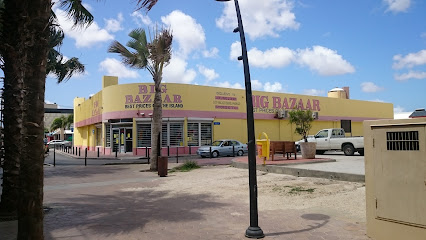
Aruba Store
Explore the Aruba Store in San Nicolas for an exquisite selection of baby clothing, ensuring your little ones are stylish and comfortable.

Shum's Store
Explore Shum's Store in Aruba - a toy haven filled with delightful toys, games, and unique gifts for all ages.

Pop-Up Store Aruba
Explore Pop-Up Store Aruba for trendy clothing and accessories at amazing prices, perfect for tourists wanting to refresh their wardrobes.

Sun & Sand
Discover the best of Aruba at Sun & Sand, your go-to gift shop for beach clothing, unique souvenirs, and stunning jewelry.

Exclusive Vintage Boutique
Explore the charm of vintage fashion at Exclusive Vintage Boutique in Oranjestad, Aruba - a unique shopping experience awaits!

T.H. Palm & Company
Explore T.H. Palm & Company in Aruba for unique gifts, trendy clothing, and local artistry that captures the island's vibrant spirit.

Essential bars & hidden hideouts
Charlie's Bar and Restaurant
Experience the vibrant flavors and lively atmosphere at Charlie's Bar and Restaurant in San Nicolas, Aruba - a must-visit for every traveler.

Rum Reef
Experience the vibrant flavors of the Caribbean at Rum Reef, a grill restaurant near Baby Beach, San Nicolas, Aruba, offering delicious dishes and stunning views.

Big Mama Grill
Experience authentic Aruban cuisine at Big Mama Grill, where local flavors meet a vibrant atmosphere near Baby Beach.

Battata Beach Bar
Discover the vibrant atmosphere and stunning ocean views at Battata Beach Bar in Savaneta, Aruba – a top destination for relaxation and fun.

Ebby's Place Bar Restaurant
Discover the essence of Aruba's culinary scene at Ebby's Place Bar Restaurant, where delicious grilled dishes meet a vibrant atmosphere.
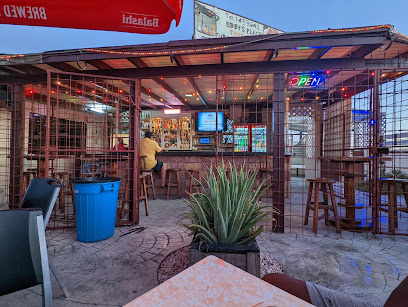
Caribbean Bar
Discover the essence of Aruba's nightlife at the Caribbean Bar in San Nicolas, where exotic cocktails and local culture come together.
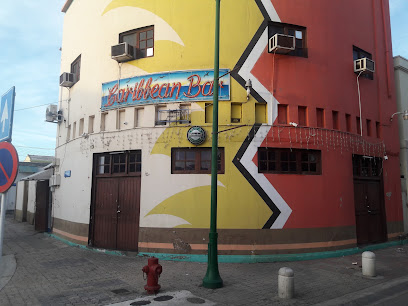
Baby Beach Snack Bar
Discover the flavors of Aruba at Baby Beach Snack Bar, where delicious food meets breathtaking beach views.

Julio's Snacks & Poolbar
Discover the vibrant atmosphere at Julio's Snacks & Poolbar in San Nicolas, where refreshing drinks and tasty snacks await you by the poolside.

Roxy Bar
Discover the vibrant nightlife at Roxy Bar in San Nicolas, Aruba. Enjoy cocktails, live music, and an inviting atmosphere for a memorable evening.

American Bar
Experience the lively atmosphere and vibrant nightlife at American Bar in San Nicolas, Aruba, a perfect spot for socializing and enjoying local culture.
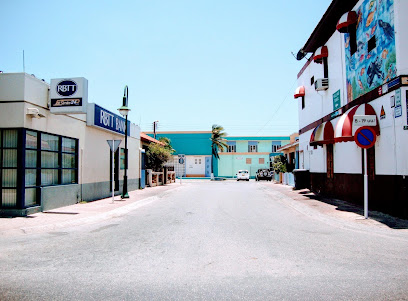
Carolina's Bar
Discover the vibrant atmosphere of Carolina's Bar in San Nicolas, Aruba, where refreshing drinks and local culture meet.

Fruit Fun Spot
Experience the vibrant flavors of Aruba at Fruit Fun Spot, a must-visit Latin American restaurant in San Nicolas.

Lago Colony Beach Club Aruba
Experience the flavors of the Caribbean at Lago Colony Beach Club Aruba, where delicious food meets stunning ocean views for an unforgettable dining experience.

Best Bar B Que
Experience the authentic taste of Aruba at Best Bar B Que, where mouthwatering barbecue meets Caribbean charm.
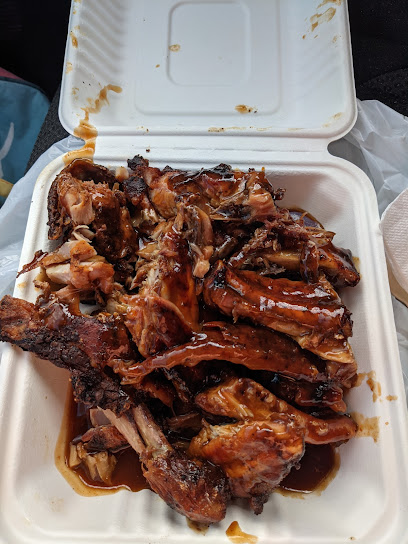
Local Phrases about Baby Beach
-
- HelloBon Dia
[Bon Dee-a] - GoodbyeAyo
[I-yo] - YesSi
[See] - NoNo
[No] - Please/You're welcomePor fabor
[Por fa-bor] - Thank youDanki
[Dan-kee] - Excuse me/SorryPardon
[Par-don] - How are you?Con ta bai?
[Kon ta ba-i?] - Fine. And you?Bon. I bu?
[Bon. Ee boo?] - Do you speak English?Bo papia Ingles?
[Bo pa-pya Ing-les?] - I don't understandMi no ta compronde
[Mee no ta kom-pron-de]
- HelloBon Dia
-
- I'd like to see the menu, pleaseMi kier mira e menu, por fabor
[Mee kyer mee-ra e me-nu, por fa-bor] - I don't eat meatMi no come carne
[Mee no kom-eh kar-ne] - Cheers!Salud!
[Sa-lood] - I would like to pay, pleaseMi kier paga, por fabor
[Mee kyer pa-ga, por fa-bor]
- I'd like to see the menu, pleaseMi kier mira e menu, por fabor
-
- Help!Yuda!
[Yoo-da!] - Go away!Bai for di aki!
[By for dee ah-kee!] - Call the Police!Yama polis!
[Ya-ma po-lees!] - Call a doctor!Yama dokter!
[Ya-ma dok-ter!] - I'm lostMi a perde
[Mee ah per-de] - I'm illMi ta malu
[Mee ta ma-loo]
- Help!Yuda!
-
- I'd like to buy...Mi kier cumpra...
[Mee kyer kum-pra...] - I'm just lookingMi ta mirando solamente
[Mee ta mee-ran-do so-la-men-te] - How much is it?Cuanto ta costa esaki?
[Kwan-to ta kos-ta eh-sa-kee?] - That's too expensiveEsaki ta muchu caro
[Eh-sa-kee ta moo-choo ka-ro] - Can you lower the price?Por fabor baha e prijs?
[Por fa-bor ba-ha eh prays?]
- I'd like to buy...Mi kier cumpra...
-
- What time is it?Kiko ora ta?
[Kee-ko o-ra ta?] - It's one o'clockTa un ora
[Ta oon o-ra] - Half past (10)Mitad di diez
[Mee-tad dee deez] - MorningMadruga
[Mad-roo-ga] - AfternoonTardi
[Tar-dee] - EveningAnochi
[A-no-chee] - YesterdayAyer
[I-yer] - TodayAwe
[A-weh] - TomorrowMañan
[Man-yan] - 1Uno
[Oo-no] - 2Dos
[Dohs] - 3Tres
[Tres] - 4Cuatro
[Kwa-tro] - 5Cinco
[Seen-ko] - 6Seis
[Sayss] - 7Siete
[Syeh-teh] - 8Ocho
[O-cho] - 9Nueve
[Nweh-veh] - 10Diez
[Deez]
- What time is it?Kiko ora ta?
-
- Where's a/the...?Unda ta e...?
[Oon-da ta eh...?] - What's the address?Kiko ta e adres?
[Kee-ko ta eh ad-res?] - Can you show me (on the map)?Por fabor mustra mi (riba e mapa)?
[Por fa-bor moos-tra mee (ree-ba e ma-pa)?] - When's the next (bus)?Kiko ora ta e proximo (bus)?
[Kee-ko o-ra ta eh pro-ksee-mo (boos)?] - A ticket (to ....)Un boleto (pa ....)
[Oon bo-le-to (pa ....)]
- Where's a/the...?Unda ta e...?
History of Baby Beach
-
Baby Beach, located on the southeastern tip of Aruba, is a man-made lagoon that was developed in the early 20th century. Originally created by the Lago Oil & Transport Co. Ltd. for their employees and families, the beach offered a safe and shallow swimming area, which is how it got its name 'Baby Beach'. The calm waters made it perfect for children and inexperienced swimmers.
-
The establishment of the Lago Oil Refinery in the 1920s marked a significant chapter in Aruba's history. The refinery, which was one of the largest in the world at the time, attracted a multicultural workforce. Baby Beach served as a recreational area for these workers and their families, becoming a melting pot of cultures and traditions. The beach was a place where people from different backgrounds could relax and enjoy the natural beauty of Aruba.
-
During World War II, the Lago Oil Refinery became a crucial asset for the Allied forces, producing aviation fuel and other petroleum products. Baby Beach continued to serve as a recreational spot for refinery workers, even as the island fortified its defenses against potential threats. The beach's tranquil environment provided a stark contrast to the tense global situation, offering a respite for those involved in the war effort.
-
After World War II, the Lago Oil Refinery continued to operate, but Baby Beach began to attract more locals and tourists. As Aruba's tourism industry started to grow, Baby Beach became a popular destination due to its clear, shallow waters and scenic beauty. The beach's transformation from a company recreational area to a public tourist attraction marked a new era in its history.
-
Today, Baby Beach is one of Aruba's most beloved attractions. The area has seen various upgrades to accommodate the influx of tourists, including the addition of amenities such as snack bars, restrooms, and rental facilities for snorkeling and other water activities. Despite these modern developments, Baby Beach retains its charm and continues to be a place where visitors can experience the serene beauty of Aruba's coastline.
Baby Beach Essentials
-
Baby Beach is situated on the southeastern tip of Aruba. The nearest airport is Queen Beatrix International Airport (AUA) in Oranjestad, approximately 25 kilometers away. From the airport, you can rent a car, take a taxi, or use a shuttle service to reach Baby Beach. The drive typically takes around 30-40 minutes. For those staying in the main hotel areas like Palm Beach or Eagle Beach, renting a car or taking a taxi is recommended for convenience.
-
While Baby Beach itself is best explored on foot, getting to and from the area requires transportation. Renting a car provides the most flexibility, especially if you plan to explore other parts of the island. Taxis and ride-sharing services are available but can be costly for multiple trips. Public buses run from Oranjestad to San Nicolas, but service frequency may be limited. Parking is generally available near the beach, but it can fill up quickly during peak times.
-
The official currency in Aruba is the Aruban Florin (AWG), but U.S. dollars are widely accepted. Credit cards are commonly used in hotels, restaurants, and shops, but it's advisable to carry some cash for smaller establishments and local vendors. ATMs are available in San Nicolas, the nearest town, where you can withdraw both Aruban Florins and U.S. dollars.
-
Baby Beach is generally safe for tourists, but standard precautions should be taken. Avoid leaving valuables unattended on the beach and be cautious when walking alone at night. While Aruba has a low crime rate, San Nicolas has areas where petty crime may occur, particularly targeting tourists. Always be aware of your surroundings and avoid poorly lit areas after dark.
-
In case of emergency, dial 911 for immediate assistance. The nearest medical facility is the Horacio Oduber Hospital in Oranjestad. It is advisable to have travel insurance that covers medical emergencies. For minor health issues, pharmacies are available in San Nicolas where you can purchase over-the-counter medications.
-
Fashion: Do wear comfortable beach attire, but avoid walking around town in swimwear. Dress modestly when visiting local communities. Religion: Do respect local customs and traditions. Aruba is predominantly Christian, and modest dress is appreciated when visiting churches. Public Transport: Do be respectful to bus drivers and other passengers. Taxis and buses are safe and reliable. Greetings: Do greet people with a smile and a friendly 'Bon dia' (Good morning in Papiamento). A handshake is common in formal settings. Eating & Drinking: Do try local dishes such as Keshi Yena (stuffed cheese) and seafood. Don't refuse hospitality, as it is considered impolite.
-
To experience Baby Beach like a local, arrive early to avoid the midday heat and crowds. Bring your own snorkeling gear to explore the vibrant marine life in the shallow waters. Visit the nearby town of San Nicolas to experience local art at the murals and galleries. Try local food trucks for an authentic taste of Aruban cuisine. Engage with locals; they are friendly and often willing to share tips and stories about the island.
Nearby Cities to Baby Beach
-
Things To Do in Savaneta
-
Things To Do in Pos Chiquito
-
Things To Do in Santa Cruz
-
Things To Do in Paradera
-
Things To Do in Sero Blanco
-
Things To Do in Oranjestad
-
Things To Do in Tanki Leendert
-
Things To Do in Noord
-
Things To Do in Palm Beach
-
Things To Do in Sabana Westpunt
-
Things To Do in Westpunt
-
Things To Do in Soto
-
Things To Do in Barber
-
Things To Do in Sint Michiel
-
Things To Do in Julianadorp








